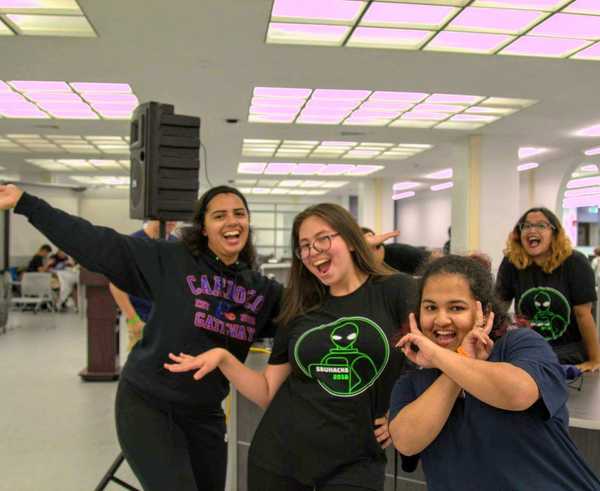On Dec. 10 at approximately 9:27 p.m., Brandon Bernard was pronounced dead—executed by method of legal injection at the Federal Correctional Center in Terre Haute, Indiana. At the age of 40, Bernard became the youngest to be executed by the federal government in over 70 years for a crime he committed at 18.
I first became familiar with Bernard's devastating case in the many months prior to December when his daughter spoke out about her father's case on Twitter in hopes of raising awareness and appealing to commute his sentence to life in prison. I petitioned, emailed, and called in the months that came; I cried and prayed—despite not being religious—when Dec. 10 came and the Supreme Court denied the appeal to delay the scheduled execution for 14 days.
Bernard's case permeated headlines and news coverages, drawing some individuals with massive platforms like Kim Kardashian to speak up and implore President Trump to intervene and commute the sentence to life in prison instead. However, most individuals with similar platforms disappointingly remained silent on Dec. 10. Despite the lack of attention from celebrities and many politicians, Bernard's case exploded on Twitter and became one of the top three trending hashtags and events—hundreds of thousands were tweeting in opposition to the execution. The execution still proceeded as planned, occurring 3 hours and 27 minutes past the scheduled time.
The following day, the federal government executed Alfred Bourgeois at 8:21 p.m. Despite Bourgeois exhibiting little to no remorse for the violent slaughter of his 2-year old daughter, I still found myself disturbed that many of the same individuals advocating against the death penalty the previous day either remained silent or claimed that Bourgeois "deserved" his execution. I do not condone Bourgeois' actions; however, one cannot choose when to be against and when to be in favor of the death penalty—you must either be against or in favor of it in its entirety. There are certainly no nuances when it comes to federally-sanctioned executions.
Capital punishment, also referred to as the death penalty, is used as a supposed method to deliver justice in cases involving capital crimes, such as murder, rape, terrorism, war crimes, etc. However, it is historically intertwined with barbaric institutions like slavery and segregation.
Despite the death penalty being reinstated by SCOTUS in 1988, federally-sanctioned executions were incredibly low in quantity—until Trump. Since July, Trump has executed 10 incarcerated individuals, most of which occurred during a period of transition. His plans for the next two months are consistent with more executions. To locate similar amounts of executions, one would have to go back to the 19th century.
Trump's decision to proceed with a copious amount of executions is inhumane and appalling; the federal government should not have the power to strip individuals of life, regardless of their actions. When I find myself overwhelmed with discomfort and sadness on related topics of capital punishment, Bryan Stevenson's quote invades my mind: "The death penalty is not about whether people deserve to die for the crimes they commit. The real question of capital punishment in this country is, Do we deserve to kill?"
Capital punishment in America directly opposes any notions of justice; in fact, most individuals sentenced to death are frequently poor or people of color. According to the ACLU, "people of color are far more likely to be executed than white people, especially if the victim is white." Additionally, experts agree that the death penalty does not prevent capital crimes from being executed; ultimately, the execution is simply an act of inhumane vengeance with no benefits.
Besides the very evident immoral nature of the death penalty, it is also an incredibly burdensome cost for states to bear. Many advocates of the death penalty claim that it is significantly cheaper to execute an individual than to commute their sentence to life in prison; however, the opposite is in fact true. In Florida, the death penalty costs $51 million more per year than allowing individuals on death row to remain in prison for life without the possibility of parole.
Additionally, when it comes to enacting the death penalty, there is invariably the risk of executing an innocent individual. According to the ACLU, 156 individuals have been released from death row due to innocence. That risk alone is not worth the ability to legally execute individuals who have committed the most violent crimes—it never will be.
In most places in the world, the death penalty has been abolished—the only remnant of this inhumane policy being the words themselves. The U.S. must follow in these footsteps; the death penalty must cease to exist as a method of 'enacting justice'. While President-elect Joe Biden has expressed adamant disapproval of the death penalty, Trump currently holds office and is doing his best to execute as many inmates as possible. It is difficult to deny that Trump is intentionally ensuring that his parting gift to America will be an influx of executions; however, it is still vital to petition and email your representatives, expressing disdain for this policy.



















